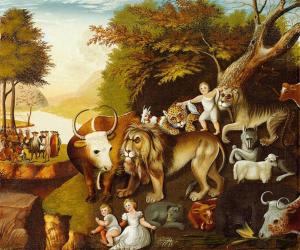The Higher Education of Women
Nonfiction, Religion & Spirituality, New Age, History, Fiction & Literature| Author: | Emily Davies | ISBN: | 9781465615527 |
| Publisher: | Library of Alexandria | Publication: | March 8, 2015 |
| Imprint: | Language: | English |
| Author: | Emily Davies |
| ISBN: | 9781465615527 |
| Publisher: | Library of Alexandria |
| Publication: | March 8, 2015 |
| Imprint: | |
| Language: | English |
IN any inquiry of a practical nature, intended to lead to some definite course of action, it is obviously necessary to start with a tolerably clear idea of the end in view—the object for which it is proposed to provide. In the case of education, definitions more or less satisfactory have already so often been given, that it might seem superfluous to go into the question again. As a matter of practice, however, it is found that, when it is attempted to apply the received definitions of the general objects of education to the case of women, they are usually questioned or modified, if not altogether set aside. When, for instance, Mr Maurice tells us that 'the end of education itself is, as it has always been considered, to form a nation of living, orderly men,' the definition will be accepted, with the tacit reservation that it applies only to men, in the exclusive sense of the word, and has nothing to do with the education of women. Again, when Milton, in his treatise on Education, lays down that the end of learning is 'to repair the ruin of our first parents by regaining to know God aright, and out of that knowledge to love Him, to imitate Him, to be like Him,' the language might be taken in a general sense; and when he goes on to define a complete and generous education as 'that which fits a man to perform justly, skilfully, and magnanimously all the offices, both private and public, of peace and war,' the words might still, perhaps, bear a common interpretation; but as soon as he comes to describing in detail, 'how all this may be done between twelve and one-and-twenty,' it becomes evident that he is thinking of boys only. In the most recent writers, the tendency to regard general theories of education as applying exclusively to that of men, is quite as strongly marked. It seems, therefore, that in attempting to treat of female education, it is necessary once more to ask what we are aiming at, and to obtain, if possible, a clear understanding and agreement as to the end in view. What ought the educators of girls to be trying to make of them? What is the ideal towards which they ought to direct their efforts, the end to be desired as the result of their labours?
IN any inquiry of a practical nature, intended to lead to some definite course of action, it is obviously necessary to start with a tolerably clear idea of the end in view—the object for which it is proposed to provide. In the case of education, definitions more or less satisfactory have already so often been given, that it might seem superfluous to go into the question again. As a matter of practice, however, it is found that, when it is attempted to apply the received definitions of the general objects of education to the case of women, they are usually questioned or modified, if not altogether set aside. When, for instance, Mr Maurice tells us that 'the end of education itself is, as it has always been considered, to form a nation of living, orderly men,' the definition will be accepted, with the tacit reservation that it applies only to men, in the exclusive sense of the word, and has nothing to do with the education of women. Again, when Milton, in his treatise on Education, lays down that the end of learning is 'to repair the ruin of our first parents by regaining to know God aright, and out of that knowledge to love Him, to imitate Him, to be like Him,' the language might be taken in a general sense; and when he goes on to define a complete and generous education as 'that which fits a man to perform justly, skilfully, and magnanimously all the offices, both private and public, of peace and war,' the words might still, perhaps, bear a common interpretation; but as soon as he comes to describing in detail, 'how all this may be done between twelve and one-and-twenty,' it becomes evident that he is thinking of boys only. In the most recent writers, the tendency to regard general theories of education as applying exclusively to that of men, is quite as strongly marked. It seems, therefore, that in attempting to treat of female education, it is necessary once more to ask what we are aiming at, and to obtain, if possible, a clear understanding and agreement as to the end in view. What ought the educators of girls to be trying to make of them? What is the ideal towards which they ought to direct their efforts, the end to be desired as the result of their labours?















